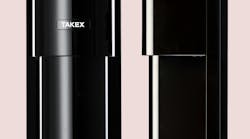Mike Crandell tells employees at Molly's Restaurant to be sure to activate the alarm system before they leave at night.
Recently, however, one employee apparently didn't get out in time, tripping the alarm.
That mistake cost Crandell $150 in a Spokane city fine.
"It's the first false alarm I've had in three years," said Crandell, who recently complained to the mayor and other city officials. "And now we get a $150 bill. I pay a ton of property taxes, and that should pay for any necessary police response."
It's a complaint city officials have heard repeatedly since mid-2006, when Spokane began enforcing an ordinance to charge annual fees to businesses and homeowners with alarm systems, and to issue fines for false alarms.
Since then, the city has collected $765,000 in fines and fees; about $192,000 of that has been spent on program administration.
The ordinance has produced results. False alarms, running about 7,000 a year before the fines and fees took effect, were cut to 2,700 last year. That has freed up the equivalent of three officers for other duties, Spokane police Lt. Glenn Winkey said.
"We estimated it was costing the Police Department about $700,000" a year to respond to false alarms before the ordinance, Winkey said.
About 98 percent of all home and business alarms are false, authorities say.
The Spokane City Council adopted the ordinance at the end of 2005. Using a list provided by alarm companies, the city sent out registration forms the next year. Those with alarms must pay $25 a year for a home and $35 a year for a business.
The city started levying fines - $75 for homeowners and $150 for businesses - for false alarms in August 2006.
"The false alarms are almost always the result of equipment or user error, a new employee who doesn't know the code, or someone leaving the door ajar when they leave," Winkey said.
Since the fines began, the 10 worst offenders have been businesses, with some causing as many as 14 false alarms.
Police wouldn't identify those businesses. Rocky Treppiedi, an assistant Spokane city attorney, said state law lets the city withhold otherwise public information that could place someone in jeopardy. In this case, Treppiedi said identifying the most-fined businesses could make those companies targets for thieves who might conclude they have faulty alarms.
Safelite Auto Glass in downtown, however, confirmed it is among those at the top of the list.
Part of the problem is where the business's alarm sensors are located, said Rich Hash, Safelite's general manager. One is on a chain-link fence, and one night a piece of plastic placed as a buffer between the fence and sensor fell on the sensor, setting off the alarm three times.
"I've had to pay $1,000 in the last month, and obviously I don't like it, but it's our error," Hash said. "If we are doing everything right then we don't get charged."
Last Tuesday someone broke in, setting off the alarm, Hash said. "If the police hadn't been there, it would have cost a lot more than $150," he said.
Back at Molly's Restaurant, Crandell still has trouble understanding how the taxes he pays aren't enough. He says he was so outraged about being charged the false-alarm fee that he posted the fine in his restaurant for all to see.
Fellow business owners and his customers share his sentiments, he said.
"When my alarm company calls me now, am I going to think twice before I tell them to call the police because it might bring a $150 charge if it's false?" Crandell said. "It's hard enough to stay in business as a small-business man without these fees."


